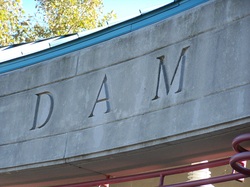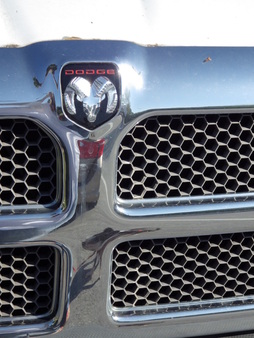 The Cornell Cooperative Extension web-based seminar ckasses for agriculture started with "Beginning Farmer 101." Naturally. It was an excellent class. I enjoyed it very much, and was sad to see it end in November. Would-be farmers like me -- having taken the intro -- were encouraged to learn more. We could sign up the following semester for either:
While I might eventually decide to use a Back-Pack for Pesticide Application, I'd just as soon wait before learning my poisons. Does it even bear saying that I would never willingly take a class to explore the Feasibility of any of my Ideas? When exploring the feasibility of my ideas, for crying out loud, I want to end up with a basket of apples, not a plan of action. So, it's Understand the Business, Tax, and Regulatory Implications of Our Farm for me. The first hour of the webinar was devoted to risk management. Farming. Risk. Seriously? Farming IS risk: drought, pests, soft markets, hard soil, bad luck, and plague. Broken fences, floods, hail, wandering livestock, honey-bee collapse, the neighbor's marauding dogs, trespassers -- these few just off the top of my head.  Still, my impatience only goes so far. Unlike a lot of beginning farmers, Jeff and I aren't betting the farm -- on the farm. In a rare moment when the tired investment metaphor actually jumps up and does its trick, this eccentric farming endeavor of ours is precisely where the phrase "minimizing one's exposure" nearly makes sense. Most farmers borrow money in an effort to pull dollars from the ground (or pluck pennies from the trees). But Jeff and I aren't starting in an unleveraged position, thankfully. We aren't investing in livestock. We have no plans to sink funds into buildings. We will not be signing mortgage papers for tractors or combines or agitators or seeders. This year's farm budget might touch the lower end of the cost of a busy sailing season -- making our exposure laughably small:
(*The reference is from John Webster's The White Devil. "Stop her mouth with a sweet kiss, my lord. So/ Now's the tide's turned, the vessel's come about./He's a sweet armful. O we curled haired men/Are still most kind to women." Not much related to shovels and loppers and rakes, but I like it anyhow.) The real investment this year will be some hours and sweat and a good chunk of brain-time. We can afford that much.
3 Comments
Flailing Scot
4/23/2014 05:07:02 am
Two thumbs up for apples - the world's healthiest food. Am just now looking at the cover of the New York Times ! where cows upstate are having their underbellies scanned and then milked by robots! A onetime friend neighbor (and NH dairy farmer) assured me that in no other endeavor could one work so hard while losing so much money. Plus apples don't do canker and greening - that's a plus. Neighbor didn't get a heckofa lot of time for yachting events I noticed. Hate the blackflies and skeeters but love the apples and the land ! Be safe and have fun !
Reply
Amy
4/23/2014 08:22:46 am
Dear Flailing --
Reply
FScot
4/23/2014 10:51:28 am
Amen to that. ( not talkin the gubment check for not growin 5000 acres of corn and soybeans this year farmer ) And no joke, people do navigate their path back to health by dropping our beloved nationwide processed corn stuff diet and embracing whole apples. Still, didn't expect cows and robots on the NYT cover today. Leave a Reply. |
About the Blog
A lot of ground gets covered on this blog -- from sailboat racing to book suggestions to plain old piffle. FollowTrying to keep track? Follow me on Facebook or Twitter or if you use an aggregator, click the RSS option below.
Old school? Sign up for the newsletter and I'll shoot you a short e-mail when there's something new.
Archives
June 2024
Categories
All
|
 RSS Feed
RSS Feed
